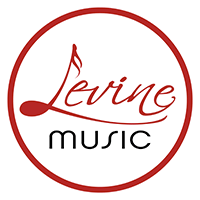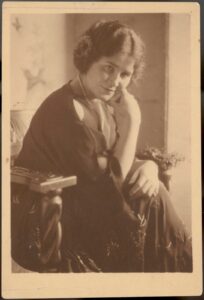Do you love contemporary genres like blues, jazz, rock, and soul? Modern music styles were built on a foundation created by Native American communities. Native American music, with its diverse traditions and rich history, is rooted in centuries-old practices. This music often involves powerful drumming, ethereal flute melodies, and a wide range of vocal styles, from prayer songs to those sung during ceremonial dances. As we celebrate Native American Heritage Month, let’s explore the work of Native American musicians, past and present, who carry on these traditions and push the boundaries of musical expression.
Discover Native American Musicians
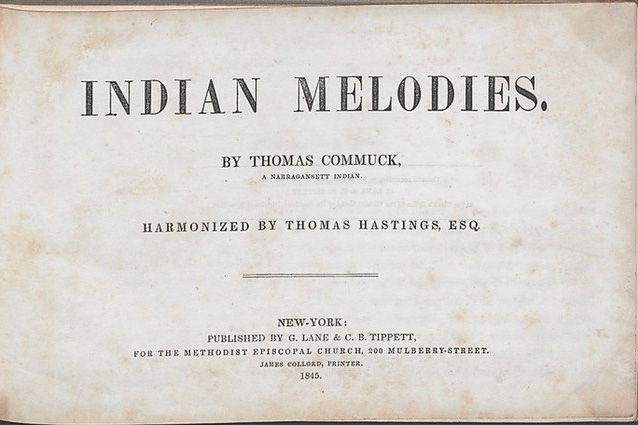
Thomas Commuck (Narragansett, 1804-1855): A pioneering Native American composer and historian, Commuck’s 1845 collection Indian Melodies is considered the first published musical work by an Indigenous person.
Dennison Wheelock (Oneida, 1871-1927): A talented bandleader, composer, and cornet soloist, Wheelock was highly regarded in his time. He was also a dedicated advocate for Native American rights. Atalie Unkalunt (Cherokee, 1895-1954): A trailblazing opera singer, Unkalunt bridged the gap between Native American and Western classical music. Her distinctive voice and powerful performances elevated Indigenous musical traditions.
Mildred Bailey (1907-1951): Known as the “Queen of Swing,” Bailey was a prominent Native American jazz singer during the 1930s. Her unique style and powerful voice made her a beloved figure in the music industry.
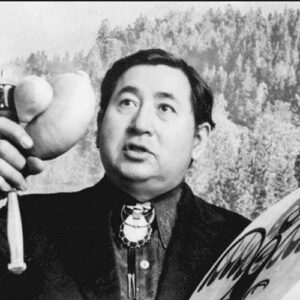
Louis W. Ballard
Louis W. Ballard (Quapaw/Cherokee, 1931-2007): Often called the “father of Native American classical music,” Ballard composed groundbreaking orchestral, choral, and chamber works that merged traditional Indigenous elements with Western classical forms.
Joanne Shenandoah (Oneida, 1957-2021): A gifted singer, composer, and multi-instrumentalist, Shenandoah’s music blended traditional melodies with modern instrumentation. Her lyrics often explored themes of nature, women’s lives, and Iroquois culture.
Brent Michael Davids (Menominee, b. 1959): A contemporary composer and flutist, Davids incorporates Indigenous musical traditions into his classical compositions. His works often delve into themes of identity, spirituality, and social justice.
Pura Fé (Tuscarora/Taíno, b. 1959): A singer-songwriter, Pure Fé was the founding member of Ulali, an all-female a capella singing group. Ulali’s music is deeply rooted in traditional Indigenous vocal styles, and their powerful performances and socially conscious lyrics have made them prominent voices in Indigenous music.
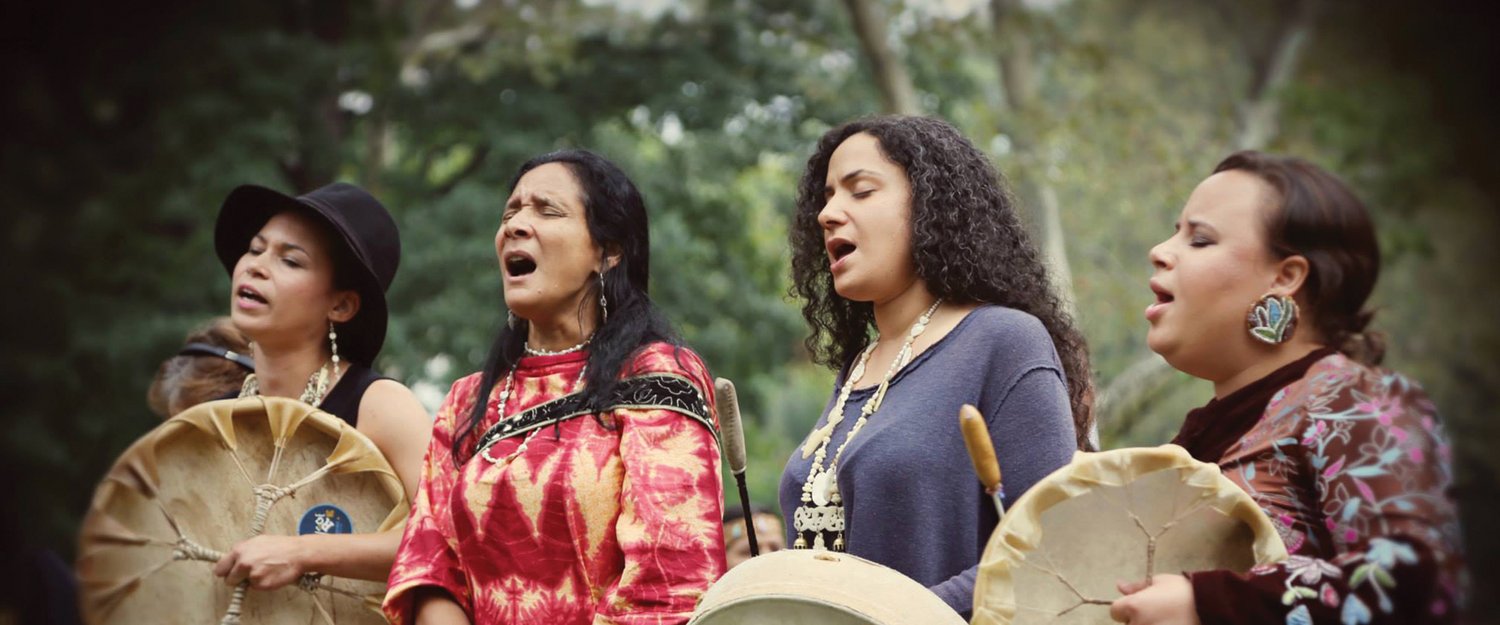
Ulali
Dawn Avery (Mohawk, b. 1961): A talented composer, cellist, vocalist, and educator, Avery’s work seamlessly blends classical music with traditional Mohawk musical elements. She is a passionate advocate for Indigenous music and culture.
Jerod Impichchaachaaha’ Tate (Chickasaw, b. 1968): A renowned composer and pianist, Tate’s work draws inspiration from traditional Native American musical elements and explores themes of cultural identity and history.
Timothy Archambault (Kichesipirini Algonquin First Nation, b. 1971): A talented architect, composer, and flutist, Archambault fuses traditional Indigenous musical elements with contemporary classical music.
Raven Chacon (Navajo, b. 1977): A versatile composer and visual artist, Chacon creates experimental music that blends traditional Native American sounds with contemporary electronic and experimental music. He is the first Native American to win the Pulitzer Prize for music.
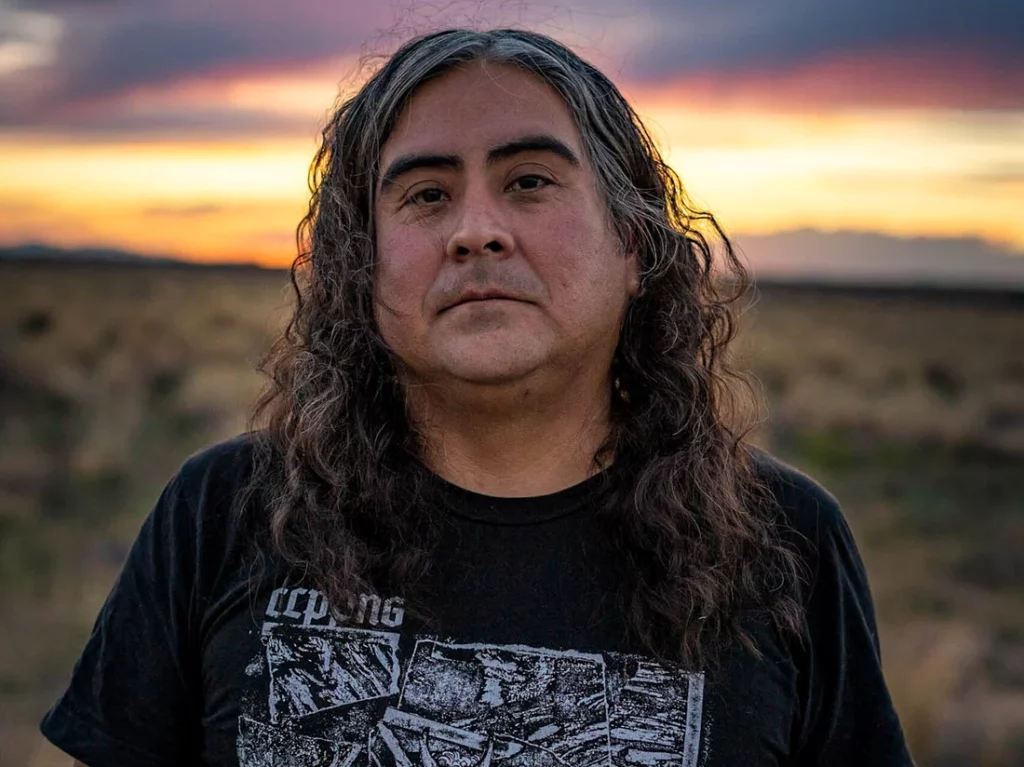
Raven Chacon, photographed by Adam Conte
Learn More About Native American Heritage Month and Native American Music
- Native American Heritage Month: Visit the official website for information and resources.
- NEH Resources for Native American Heritage Month: The National Endowment for the Humanities has funded numerous projects that preserve and document Native American, Alaska Native, and Native Hawaiian language and history.
- National Museum of the American Indian: Explore the museum’s website for exhibits, educational programs, and information on Native American music and culture.
- Native American Heritage Collection: Explore PBS’s collection exploring Indigenous art, history, and culture as told through the historians, artists, students, and scientists in this featured resource collection.
By exploring the rich and diverse world of Native American music, we can gain a deeper appreciation for the cultural heritage of Indigenous peoples and the enduring power of their music.
Community and Accessibility at Levine
Since our founding in 1976, Levine Music has been committed to cultivating an inclusive and supportive community that educates, inspires, and provides opportunities for all students, families, faculty, and staff. The art form of music has developed throughout the course of human history, serving a variety of sacred and secular functions in the history of nearly every culture across the globe. In our study of musical traditions past and present, we come across examples of historical figures, events, and ideologies that contradict our values. In our role as music educators, Levine not only provides context for these examples but also provides opportunities to expand our repertoire to include works, genres, artists, and cultures historically excluded from the canon.
Levine’s Community and Accessibility Working Group meets regularly to ensure we embody these ideals by monitoring our work, creating best practices, and encouraging transparency in the continual integration of Levine’s core values throughout our campuses and programs.
Learn more about Levine’s commitment to Community and Accessibility and our Community and Accessibility Working Group and its initiatives.
